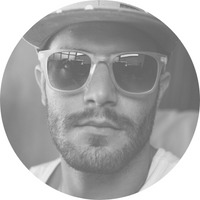
 Nick Pelios
Freediver, Creator
Nick Pelios
Freediver, Creator

 Nick Pelios
Freediver, Creator
Nick Pelios
Freediver, Creator
In the early days of freediving, knowledge was scarce. Its pioneers at that time were learning by trial and error, often getting themselves into very difficult situations, as such things hadn't been done before, yet still, they found a way to progress and dive deeper & safer. Here's how Guillaume Nery described those times when interviewed on The Freedive Cafe Podcast.
"In the early days of freediving, we were all, kind of, pioneers. We were trying to discover new territories. After I started freediving deeper, I was around 18-19 years old, I decided to take part in my first freediving championship in Ibiza, in 2001. That was my first experience where athletes from different countries could share knowledge. That was fascinating cause we were all trying to get new info. In Nice, we had our own way of diving and it was very conservative. We had something like a rule at that time, so when I did a new PB, I had to repeat it the next day. And if the dive was perfect, then I could improve it by adding another 2 meters to the dive next time. So it was very slow.
We were searching and talking about things at that time, equalization for example, but we weren’t talking about mouthfill, etc, we were not that technical. I was very lucky as I could equalize hands-free, but I didn’t know what I was doing, I found out after that I was doing reverse packing! All the different techniques that we know now and can teach them, at that time, it was very hard. When I did my 1st World Record in 2002, I was 20 years old, I dove to -87m, I was wearing a mask, hands-free, no freefall, basically swimming to reach the bottom. It was hard to explain how I did it to others. It took much longer to learn but it was a fascinating way to explore".